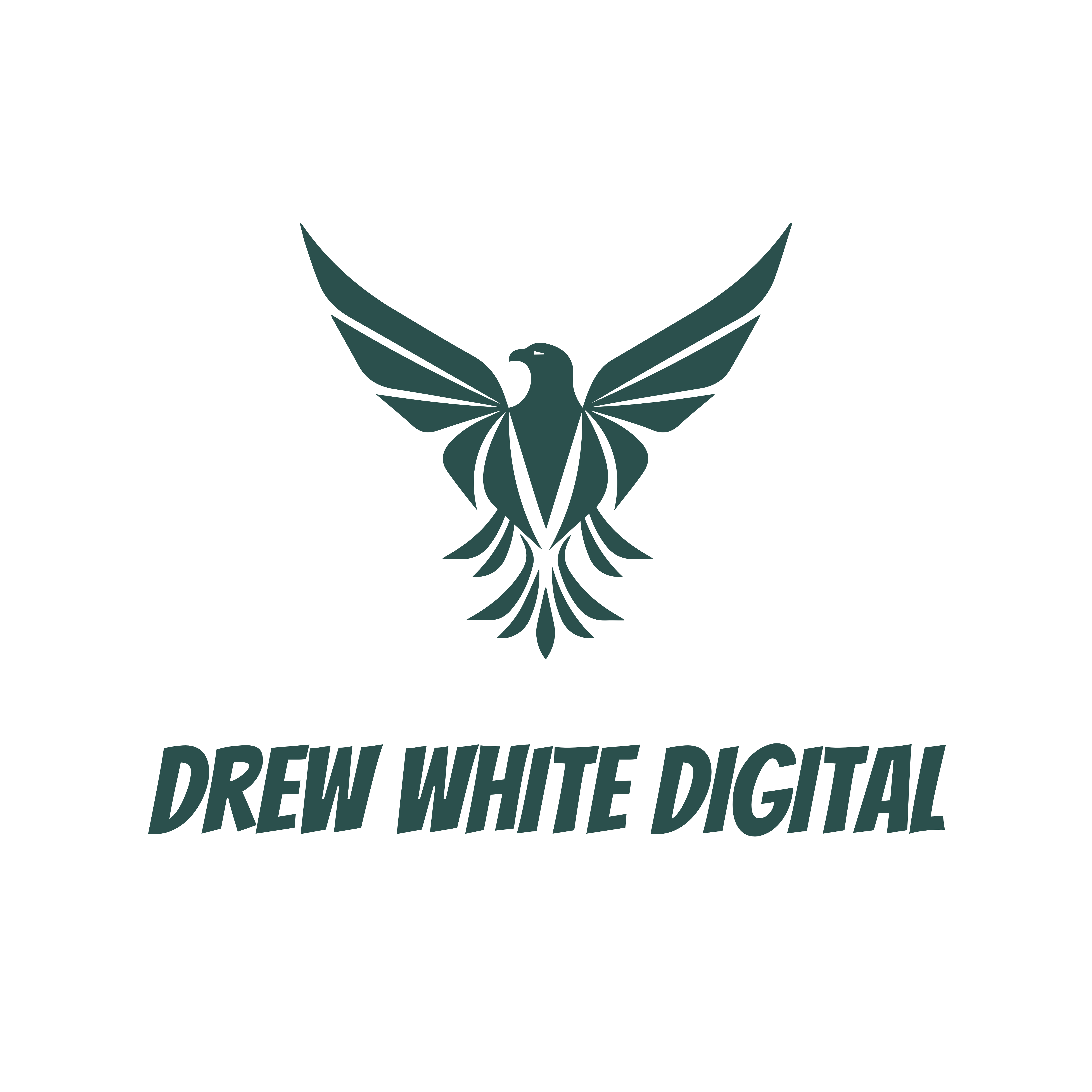Content Marketing 101 - Strategies For Success
Welcome to Content Marketing 101, a thrilling expedition into the captivating realm of content marketing. Brace yourself for an immersive journey where we delve deep into the influential world of creating and distributing compelling content that ignites hearts, captures minds, and sparks meaningful connections. In this guide, we will unlock the secrets of content marketing, and understanding its significance in today’s evolving digital landscape.
Content marketing, a powerful blend of strategic storytelling and audience engagement, emerges as the catalyst that breathes vitality into brands, propels their digital presence to new heights, and ignites an unwavering community of passionate advocates. It is the lifeblood of contemporary marketing, conducting a symphony of compelling content that reverberates with laser precision, captivating a distinct target audience and etching an unforgettable legacy in their hearts and minds. As you embark on this awe-inspiring expedition, whether you are a novice, eagerly diving into the immersive depths of content marketing, or a seasoned virtuoso, yearning to amplify your existing strategies, this guide assumes the role of your trusted conductor, guiding you towards the shores of resounding triumph.
Within the vast expanse of this comprehensive guide, you will discover the transformative power of content marketing, a force that not only kindles brand awareness but also forges unbreakable connections with your audience. Embarking on a thrilling voyage through the ever-evolving currents of this vibrant realm, we will empower you with priceless wisdom, actionable strategies, and expert tactics to master the art of crafting captivating narratives, evoking emotions that ignite sparks of inspiration and driving unwavering action. Side by side, we shall unravel the enigmatic threads of content creation, seamless distribution, and meticulous optimization, unleashing your brand’s full potential and forging an authoritative voice that resounds harmoniously with your cherished audience. Are you ready to embark on this extraordinary adventure that promises to revolutionize your content marketing journey? Let the magic begin.

Components of Content Marketing
Content marketing is a comprehensive approach consisting of three essential components: content creation, distribution, and utilization of diverse formats. The first component involves conducting thorough market research to understand the audience’s preferences, using techniques like sentiment analysis and topic modeling. This helps create tailored and resonant content. The second component focuses on strategically disseminating the content across various channels, maximizing its reach and engagement. By combining expertise and optimization strategies, content marketers establish authority and foster meaningful connections.
Crafting informative and engaging content requires a delicate balance between providing valuable information and capturing the audience’s attention. By applying sentiment analysis techniques, content creators can gauge the emotional tone of their target audience and adapt their messaging accordingly. This not only helps establish an emotional connection but also allows for a more tailored and personalized content experience.
The second component, content distribution, focuses on effectively disseminating the created content across various channels to maximize its reach and engagement. Websites, blogs, social media platforms, email newsletters, and online communities serve as vital channels for content distribution. Leveraging these platforms ensures that the content reaches the intended audience and sparks their interest. By strategically selecting the appropriate channels and utilizing optimization techniques, content marketers can increase the visibility and discoverability of their content.
Successful content distribution goes beyond mere dissemination—it involves engaging with the audience and encouraging interaction. This can be achieved by initiating discussions, responding to comments, and encouraging social media shares and engagement. These interactive elements foster a sense of community and build strong relationships with the audience, ultimately establishing brand loyalty and trust.

Remember, content marketing relies on three key core components: content creation, content distribution, and the use of various content formats. When you conduct thorough market research and employ techniques such as sentiment analysis and topic modeling, content creators often craft informative and engaging content that resonates with their audience. Effective content distribution, through a strategic selection of channels and engaging with the audience, ensures maximum reach and impact. By implementing these key components, businesses can harness the power of content marketing to establish their brand, engage with their target audience, and drive meaningful results.
Creating a Content Marketing Strategy
To embark on a triumphant journey in the realm of content marketing, a well-crafted strategy serves as your guiding compass. It all begins by immersing yourself in the depths of your target audience’s desires, aspirations, and challenges through comprehensive market research. This invaluable knowledge not only illuminates the path ahead but also lays the foundation for content that truly resonates with your audience’s deepest needs. Setting clear and measurable goals becomes the catalyst that propels your content marketing efforts forward, allowing you to gauge success, track progress, and make informed decisions along the way.
As you dive deeper into the ocean of content creation, a well-structured content calendar becomes your trusted ally. This strategic tool not only helps you organize your content production but also ensures a consistent and steady flow of valuable information to captivate and engage your audience. With a meticulous distribution schedule, your content takes flight across various platforms and channels, leaving a lasting impression wherever your audience may be. This multi-dimensional approach maximizes your brand’s visibility and reach, positioning you as a thought leader and attracting a loyal following.
In this dynamic landscape, monitoring key metrics becomes the compass by which you navigate your content marketing voyage. Tracking website traffic, engagement rates, conversion rates, and social media reach provides invaluable insights into the effectiveness of your strategy. These metrics act as beacons of wisdom, illuminating the areas where your content shines and revealing opportunities for improvement. Armed with this knowledge, you can make data-driven adjustments and optimize your performance, ensuring that every piece of content is a masterpiece that resonates deeply with your audience and drives meaningful results.

Types of Content
Content marketing embraces an array of captivating content formats tailored to diverse audience preferences. Written content, such as compelling blog posts, insightful articles, and comprehensive e-books, immerses readers in a wealth of knowledge, educates them, and positions content creators as industry thought leaders. Audio content, including engaging podcasts, enlightening interviews, and informative audio guides, offers a convenient and immersive experience that appeals to auditory learners and provides on-the-go access to valuable insights. Video content, in the form of captivating tutorials, authentic product reviews, and live streams, visually engages and emotionally resonates with viewers, effectively simplifying complex subjects. Meanwhile, image content, such as visually appealing infographics, captivating visual storytelling, and stunning illustrations, delivers information concisely, enhances user experiences, and encourages social sharing.
These diverse content formats enable content marketers to tap into the preferences and learning styles of their target audiences, effectively capturing attention and nurturing engagement. By deploying a strategic mix of written, audio, video, and image content, content marketers can curate captivating narratives, elicit emotions, and establish a unique brand identity. Whether it’s the immersive depth of written content, the convenient and personal connection of audio content, the impactful visual storytelling of video content, or the concise and visually stunning nature of image content, each format serves as a powerful tool for content marketers to effectively communicate their messages, captivate their audience, and make a lasting impact.

Moreover, these diverse content formats offer content marketers an invaluable opportunity to demonstrate their expertise, showcase their creativity, and establish their authority in a competitive digital landscape. By strategically curating valuable and engaging content across diverse platforms and formats, content marketers can wield a powerful influence over their target audience, captivating their attention and propelling them towards their with resounding impact. To unlock the full potential of content marketing, it is imperative for marketers to fearlessly embrace the spirit of experimentation, venturing into uncharted territory with a repertoire of content formats that resonate deeply with their audience’s preferences. By continually delivering high-quality, compelling content that aligns seamlessly with their brand identity and values, content marketers establish an unassailable authority and forge enduring connections that withstand the test of time. This commitment to excellence will not only foster audience engagement but also set content marketers apart as trusted sources of valuable information and captivating storytelling in their respective industries.
Best Practices for Content Marketing
To truly excel in the realm of content marketing, it is paramount to embrace and implement the best practices that have proven to yield remarkable results. Consistency becomes the bedrock of your success as you consistently deliver value-infused content that establishes your brand’s authority and cultivates trust within your audience. By striving for excellence in every piece you create, conducting extensive research, crafting well-written and accurate content, and consistently delivering value, you become a trusted source of information and forge an unbreakable bond with your readers.
Relevance becomes the compass guiding your content creation journey as you strive to address the specific pain points, interests, and aspirations of your target audience. By delving deep into their needs and desires, you create content that resonates powerfully with them, offering practical solutions to their challenges and fostering a profound connection. Remember, relevance is the key to capturing and holding their attention, ensuring that your content remains engaging, informative, and valuable.
Engagement serves as a vibrant measure of your content’s success, providing a reflection of the active participation and connection you establish with your audience. Foster interaction and dialogue by incorporating interactive elements such as comment sections, social media sharing buttons, and opportunities for lively online discussions. By actively encouraging your audience to share their thoughts, insights, and experiences, you create a vibrant community around your content, fostering a sense of belonging, loyalty, and genuine enthusiasm.

SEO optimization adds an essential layer to your content marketing strategy, enabling your remarkable creations to be discovered by a wider audience. Strategically incorporating relevant keywords, optimizing meta tags, headings, and URLs, and ensuring a user-friendly website structure catapults your content higher in search engine results. This enhanced visibility drives organic traffic to your website, propelling your brand to new heights and amplifying your influence within your industry.
By embracing these time-tested best practices in content marketing, you ascend as an influential authority in your field. Through the unwavering commitment to consistently deliver high-quality, relevant, and engaging content, optimizing it for search engines, and fostering active engagement with your audience, you nurture a devoted following and achieve extraordinary results for your brand. Your journey toward content marketing success begins with a resolute dedication to providing value and connecting authentically with your audience.
Measuring Success
Evaluating the effectiveness of your content marketing endeavors extends far beyond the mere creation and dissemination of content. It necessitates delving into the realm of data analysis and meticulously tracking pertinent metrics to extract valuable insights that will inform your strategic decisions. By tracking KPIs such as website traffic, time on page, bounce rate, conversion rates, social media engagement, and customer feedback, you gain valuable insights into the effectiveness of your content strategy. These metrics provide a comprehensive view of audience resonance and behavior, guiding optimization efforts. Delving deeper with sentiment analysis reveals emotional nuances, enabling data-driven decisions and stronger connections with your audience. Analyzing data uncovers patterns, trends, and actionable insights, allowing continuous refinement of your content marketing strategy for superior results.
In addition to these traditional metrics, leveraging more advanced techniques such as sentiment analysis enables a deeper comprehension of your audience’s responses and sentiments towards your content. Sentiment analysis, powered by advanced natural language processing (NLP) algorithms, allows you to assess the emotional tone of customer feedback and social media interactions. By understanding sentiment, you can make data-driven decisions to refine your content strategy and better cater to your audience’s evolving needs, fostering stronger connections and brand loyalty.
Moreover, data analysis transcends the boundaries of surface-level metric tracking. It necessitates delving deep into the trove of data to unearth patterns, trends, and actionable insights. By rigorously analyzing data, you can identify the content topics that elicit the most profound engagement and conversions, discern the impact of various distribution channels, and uncover lucrative optimization opportunities. This iterative process empowers you to make data-driven adjustments to your content marketing strategy, perpetually honing its effectiveness and aligning it more seamlessly with your desired outcomes. By harnessing the formidable power of data, you can supercharge the potency of your content marketing initiatives, propel superior outcomes, and outmaneuver the competition with unwavering finesse.

Conclusion
In conclusion, content marketing is a powerful strategy for businesses to connect with their target audience, establish thought leadership, and drive engagement. By understanding the components of content marketing, creating a well-planned strategy, producing diverse types of high-quality content, following best practices, and measuring success through relevant metrics, businesses can harness the true potential of content marketing. This comprehensive guide equips you with the necessary knowledge and actionable steps to embark on a successful content marketing journey. Remember, consistency, quality, relevance, engagement, and SEO optimization are the key elements for success in the ever-evolving world of content marketing. It’s time to unleash the power of content marketing and watch your business thrive in the digital age.
FAQ - Content Marketing 101
1. What is content marketing and why is it important?
Content marketing is a strategic approach that involves creating and distributing valuable, relevant, and consistent content to attract and engage a target audience. It is important because it helps businesses establish thought leadership, connect with their audience, drive engagement, and ultimately achieve their marketing objectives.
2. What are the components of content marketing?
The components of content marketing include content creation, content distribution, and utilization of diverse content formats. Content creation involves conducting market research, crafting valuable content, and adapting it to resonate with the target audience. Content distribution focuses on strategically disseminating the content across various channels, maximizing reach and engagement. Utilizing diverse content formats, such as written, audio, video, and image content, allows content marketers to cater to different audience preferences and effectively communicate their messages.
3. How do I create a content marketing strategy?
To create a content marketing strategy, you need to identify your target audience, set clear goals, and plan your content creation and distribution. Start by conducting market research to understand your audience’s needs and preferences. Then, set specific and measurable goals that align with your overall marketing objectives. Finally, create a content calendar, establish a distribution strategy, and consistently produce and distribute valuable content to engage your audience.
4. What are the different types of content in content marketing?
Content marketing encompasses various content formats, including written, audio, video, and image content. Written content includes blog posts, articles, and e-books that provide in-depth knowledge and position content creators as thought leaders. Audio content includes podcasts, interviews, and audio guides that offer convenient and immersive experiences for auditory learners. Video content comprises tutorials, product reviews, and live streams that visually engage and emotionally resonate with viewers. Image content, such as infographics and illustrations, delivers information concisely and enhances user experiences.
5. What are the best practices for content marketing?
The best practices for content marketing include consistency, quality, relevance, engagement, and SEO optimization. Consistency involves delivering content regularly to maintain audience interest and trust. Quality content is well-researched, accurate, and valuable to the target audience. Relevance means addressing the specific pain points and interests of the audience. Engagement is fostered through interactive elements and encouraging audience participation. SEO optimization ensures that content is discoverable and ranks well in search engine results.
6. How can I measure the success of my content marketing efforts?
To measure the success of your content marketing efforts, you can track key performance indicators (KPIs) such as website traffic, time on page, bounce rate, conversion rates, and social media engagement. By analyzing these metrics, you can gain insights into audience behavior and the effectiveness of your content strategy. Sentiment analysis can also be used to understand the emotional tone of customer feedback and social media interactions, providing deeper comprehension of audience responses and sentiments.
7. Why is consistency important in content marketing?
Consistency is important in content marketing because it helps build trust and maintain audience interest. By consistently delivering valuable content, you establish yourself as a reliable source of information and build a loyal following. Consistency also helps in maintaining brand identity and ensuring a steady flow of content to engage your audience.
8. How can I ensure the relevance of my content in content marketing?
To ensure the relevance of your content, you need to conduct thorough market research and understand your target audience’s needs and preferences. By addressing their specific pain points and interests, you can create content that resonates with them and provides valuable solutions. Regularly staying updated with industry trends and listening to your audience’s feedback also helps in keeping your content relevant and engaging.
9. Why is engagement crucial in content marketing?
Engagement is crucial in content marketing because it fosters a sense of community, builds relationships, and encourages audience participation. By incorporating interactive elements such as comment sections, social media sharing buttons, and opportunities for discussion, you create a platform for your audience to actively engage with your content. This interaction strengthens the connection between your brand and your audience, leading to increased loyalty and brand advocacy.
10. How does SEO optimization impact content marketing?
SEO optimization plays a significant role in content marketing as it helps improve the visibility and discoverability of your content in search engine results. By strategically incorporating relevant keywords, optimizing meta tags, headings, and URLs, and ensuring a user-friendly website structure, you can increase organic traffic to yourwebsite. SEO optimization enables search engines to understand the relevance and value of your content, resulting in higher rankings and increased visibility. This, in turn, drives more targeted organic traffic to your website, enhancing the overall success of your content marketing efforts.
